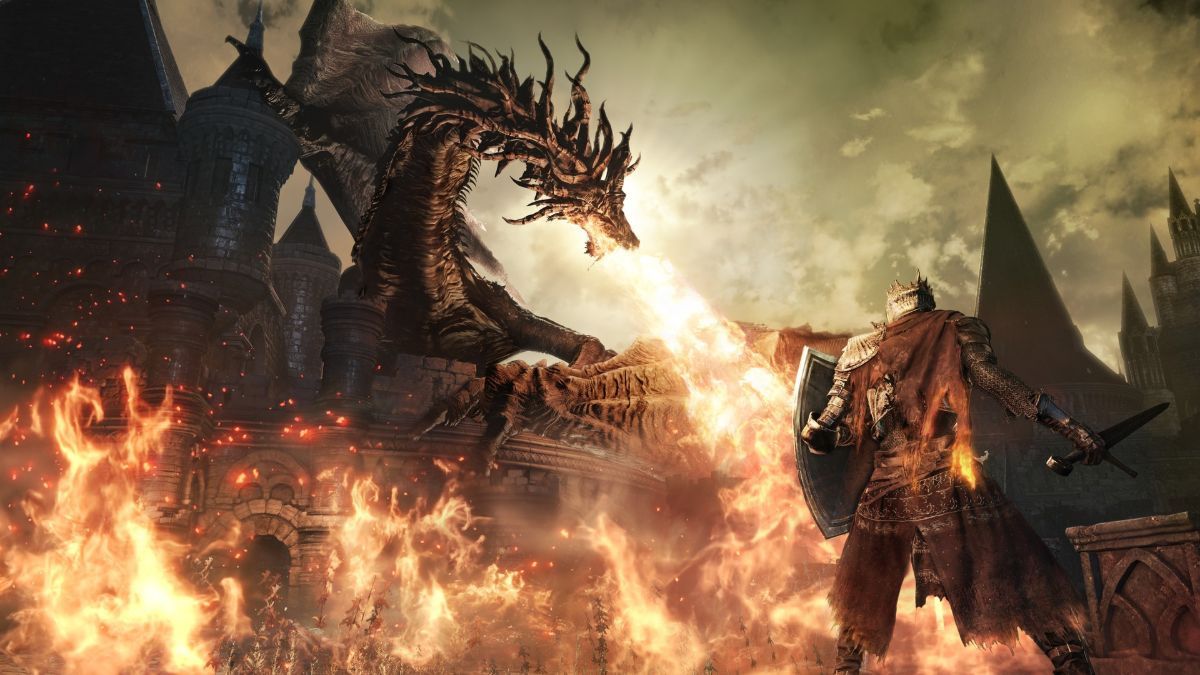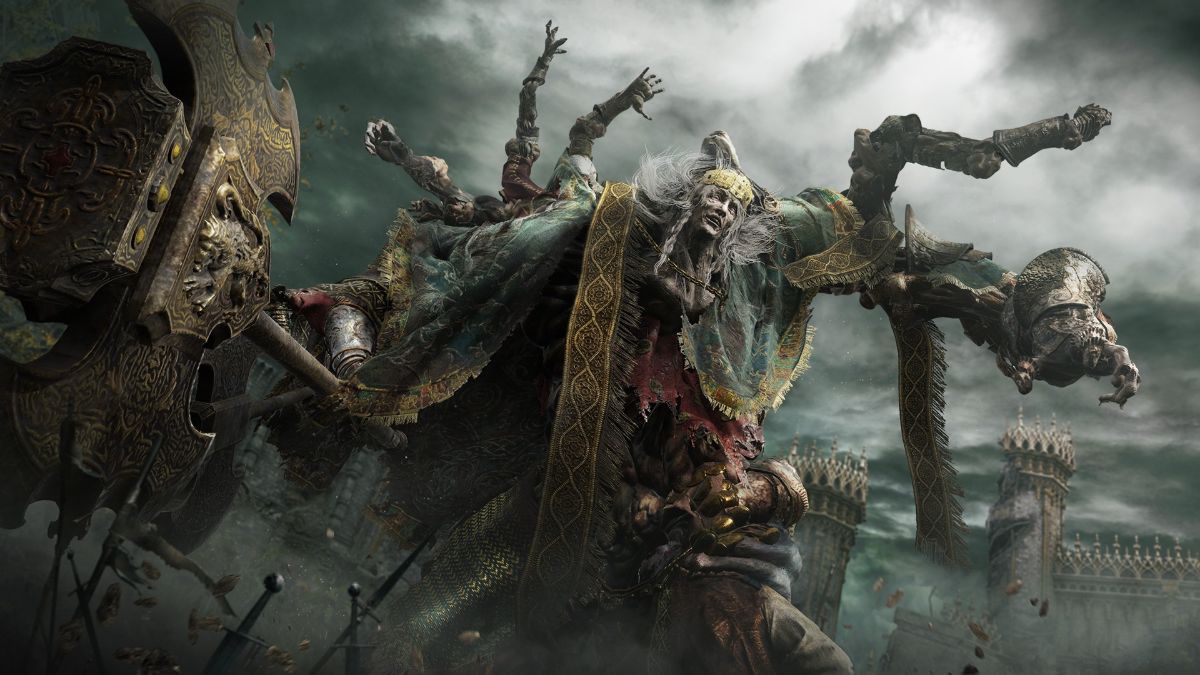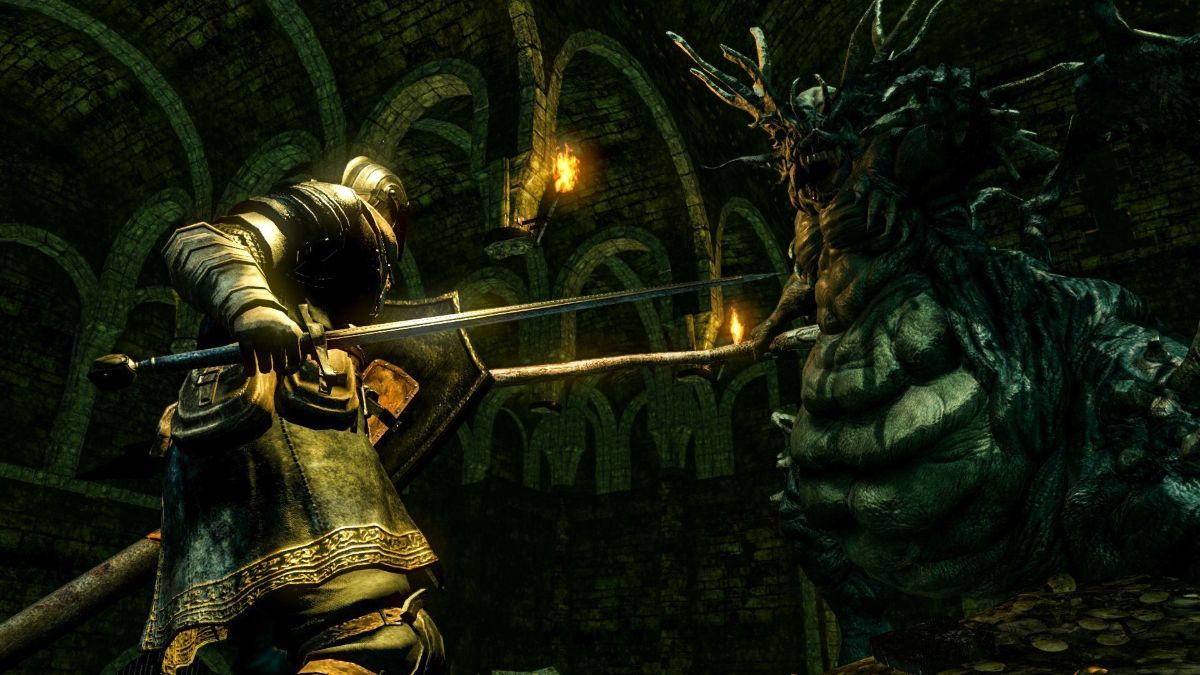With FromSoftware's launch of Elden Ring, the term "Soulsborne" has once again entered the gaming vernacular. If you're confused about its definition, here's what you need to know about Soulsborne, Soulslike, and why they matter.
What Does "Soulsborne" Mean?
While there's no agreed-upon definition, the term "Soulsborne" typically refers to games developed by FromSoftware that follow a specific set of rules. In short, they are challenging third-person action games that rely on stamina-based combat, experience points that are lost upon death, and a loose narrative structure that leaves it up to the player to unravel its mysteries. They also tend to be set in bleak, unforgiving worlds -- although the specific setting can vary drastically between each entry.
The subgenre was started with the launch of Demon's Souls in 2009, although it didn't explode in popularity until several years later. The moniker Soulsborne refers to both the Souls lineup and Bloodborne --- which was widely considered to be the developer's best game before Elden Ring.
Depending on who you ask, a "Soulsborne" game might incorporate any (or all) of the following:
- Loose Narrative: Few cutscenes and plotlines are offered to the player. The narrative unfolds by exploring your world and uncovering new secrets, talking with NPCs, and slaying bosses. There may or may not be a quest log, but almost certainly there will be no quest markers or anything indicating your next destination.
- Stamina-Based Combat: Your attacks, blocks, and dodge rolls all consume stamina. Perform too many actions, and you'll be left exposed. Combat also tends to be unforgiving, with just a few missteps leading to death.
- Pattern Memorization: Enemies tend to signal their attacks before unleashing them, giving you the chance to evade them. Most games in the genre require you to memorize these attack patterns in order to be successful.
- Bonfires: Called "Sites of Grace" in Elden Ring, these locations offer a reprieve from the action. They allow you to check your status, upgrade your attributes, and offer something of a checkpoint.
- Oppressive Environment: Everywhere you look, there's something trying to kill you. Few locations are safe from harm, and there's an ever-present feeling that the world is bearing down on you.
- Progression System: Whether you're unlocking new weapons, reaching new environments, or upgrading your attributes, the subgenre is constantly giving you ways to feel like you're making progress towards the end of the game.
- Loss of Experience Upon Death: If you are holding any unused experience points (often called Souls or Runes), you'll drop them upon death. You're then free to pick them back up in a subsequent run, although if you die a second time they'll be lost forever.
In short, a Soulsborne game is a difficult-but-fair game developed by FromSoftware that offers challenging combat, a loose narrative, and a bleak world to explore.
What Does "Soulslike" Mean?
A Soulslike game is one that copies many elements of the Soulsborne genre, although it isn't necessarily made by FromSoftware. It can also deviate from the set formula and its requirements are a bit more flexible. For example, it could offer challenging, stamina-based combat, a robust progression system, but be set in a world that's a bit less oppressive than the Lands Between. Many people use it to simply describe a game that's difficult --- although others don't believe it holds true to the term's original intent.
Games that have been described as Soulslike include:
List of Soulsborne Games
The following titles were developed by FromSoftware and comprise the majority of the Soulsborne lineup. You'll find dozens of "Soulslike" spin-offs (including titles like Mortal Shell and Remnant: From the Ashes), but these titles laid the foundation for others to follow.
- Demon's Souls (PS3)
- Demon's Souls Remastered (Developed by Bluepoint for PS5)
- Dark Souls (PS3, Xbox 360, PC)
- Dark Souls Remastered (PS4, Xbox One, Switch, PC)
- Dark Souls II (PS3, PS4, Xbox 360, Xbox One PC)
- Dark Souls III (PS4, Xbox One, PC)
- Sekiro: Shadows Die Twice (PS4, Xbox One, PC)
- Bloodborne (PS4)
- Elden Ring (PS4, PS5, Xbox One, Xbox Series X, PC)




